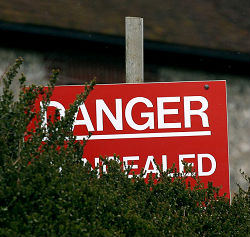By Nancy Byerly Jones
(Re-published by Lawyers USA and many CLE programs)
There are a number of all-too-well-known malpractice and grievance traps and other hidden dangers: conflicts of interest, missed deadlines, lack of competency, confidentiality/fiduciary breaches, clerical errors, failure to document adequately and poor client relations. In this writing, however, I focus not on these common errors, but on a few of the hidden dangers that could be lurking right under our noses.
Sloppy leadership
This can include the total absence of leadership, sporadic effective leadership, internal competition amongst the firm’s leaders or a lack of understanding regarding what leadership means.
Ineffective daily management
Even firms smart enough to have full time legal administrators can experience ineffective day-to-day management if the wrong person is chosen for this critical position. But some firms refuse to spend the money on administrators because they lack the foresight to see beyond the salary costs or to recognize the big picture benefits for the firm with an experienced and properly selected administrator on board. And others refuse to give a non-partner the authority needed to do his or her job properly.
Sloppy hiring, training and supervision of staff
Malpractice will inevitably raise its destructive head when too little attention and planning is given to who is hired, the quality of the training offered and the supervision of employees. All too often, hiring decisions are made quickly, with little thought put into the interview process itself, much less the potential “fit” of a particular applicant within the firm’s culture. Further, no supervision is preferable to supervision by the wrong person. Individuals who abuse their authority or have poor interpersonal skills are all too often put in supervisory positions. With no watchdog over them, the odds are greatly increased for high employee turnover, low office morale, increased malpractice risks and lower productivity.
Greed
A multitude of problems can invade firms when monetary greed begins to outweigh our compassion for our clients and dilute our loyalties to the oath we took when we became Officers of the Court. Greediness can quickly lead to an excessive number of cases on our plates. When our volume is too high in comparison to our attorney and staff capabilities, work quality and the time to commit to each matter is severely compromised. Chronically and overly excessive caseloads may appear to be a mark of success, but at the risk of appearing harshly blunt, stupidity is the more accurate word.
A firm in name only
Do you share the costs and liabilities with partners, but otherwise operate as individual practices that just happen to be under the same roof? Are regular and productive communications among the partners few and far between? Does each section of your firm follow its own systems and procedures separate and apart from the other departments?
Firms in name only are ticking time bombs. Too many attorneys fail to see the negatives far outweigh the positives when their firm name is mere verbiage for identification purposes only. Furthermore, those departments that excel in implementing good policies and reaching their goals will share the negative fallout from another department’s failure to do the same.
No accountability
Setting goals, adopting systems or formulating procedures is a bit useless unless all attorneys and staff are held accountable to do what is needed and expected of them. What does accountability mean in your firm? Has leadership taken the necessary time to define different levels of accountability and the corresponding disciplinary actions? Are the rules fairly enforced across the board? Failing to hold ourselves and others accountable is an enormous obstacle in our path to success. We want success, but when the steps towards reaching our goals are awkward or tough ones, we often shy away rather than hold folks absolutely accountable to do their part.
Poorly balanced lives
The well-balanced, healthy lawyer wins – it’s that simple. Ignore your health and the importance of finding a healthy balance between your professional and personal lives and it will catch up with you in and out of the office. Further, a failure to encourage and insist upon a healthy balance for your employees will ultimately backfire as well.
Lousy attitudes
Chronic bad attitudes are the perfect breeding ground for malpractice. We all know the energy and productivity lost in the company of a chronically negative individual. The bad effects of their poor attitude far outweigh any skills or “pedigree” they may have. Other problem attitudes are reflected in statements such as “It’s someone else’s job” or “I’m too busy.” If we allow this kind of environment to exist within our firms, we should not be surprised when we must pay the “cost” of the harm done.
Final Words On The Costs Of These Hidden Dangers
We all need to remain acutely aware of the age-old and well-known malpractice and other traps that can harm us and our clients. We also need to be keenly aware of the hidden dangers that can lurk within our firms. We may think we’re too busy to bother with such matters – but if a malpractice claim or grievance lands on our desk, many new deadlines will be imposed upon us whether we have time for them or not. And that doesn’t include the other negative ramifications and “costs” our clients and we will no doubt incur. It’s really a no-brainer – taking steps to avoid being put in that position is a very wise decision to make.

